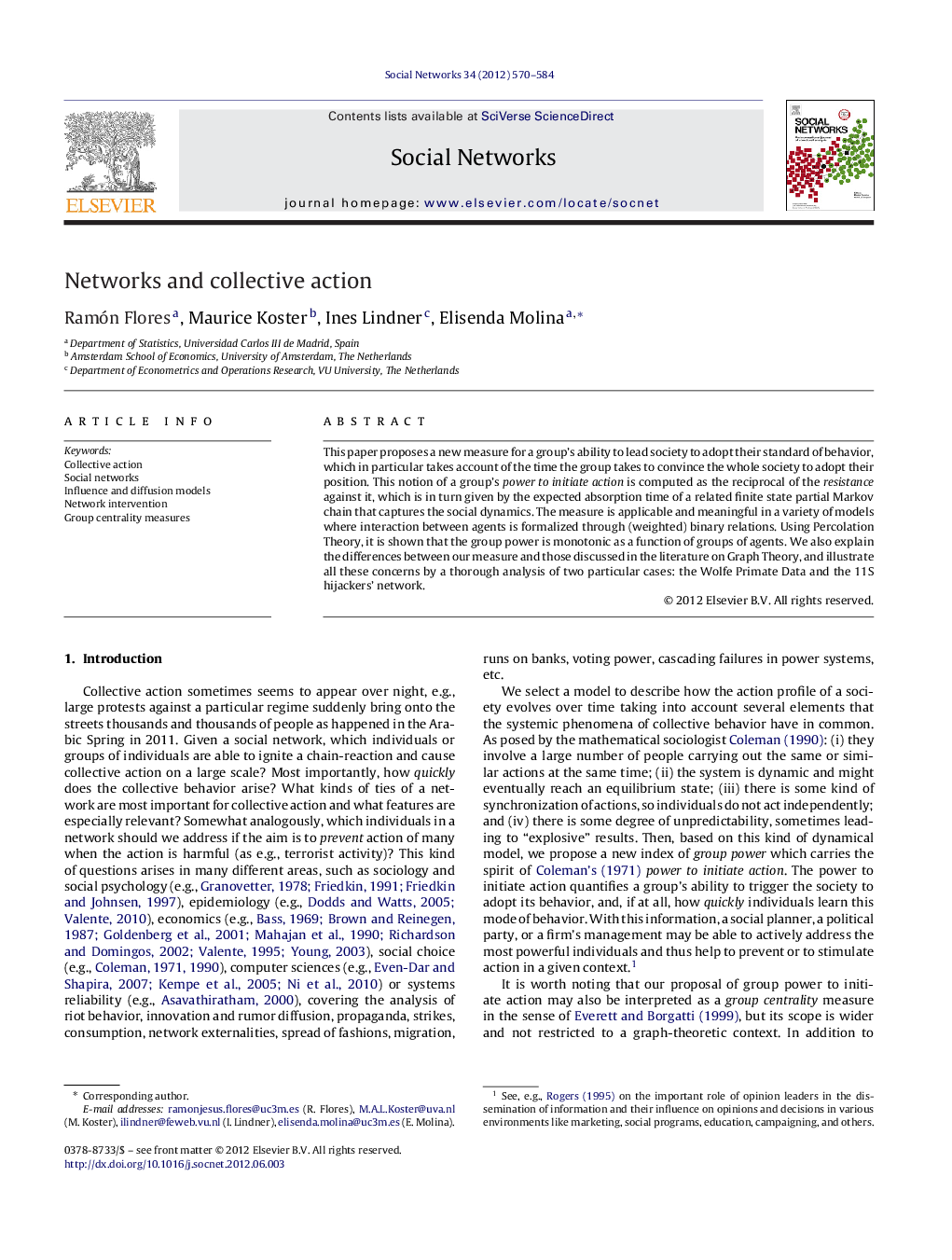| Article ID | Journal | Published Year | Pages | File Type |
|---|---|---|---|---|
| 1129336 | Social Networks | 2012 | 15 Pages |
This paper proposes a new measure for a group's ability to lead society to adopt their standard of behavior, which in particular takes account of the time the group takes to convince the whole society to adopt their position. This notion of a group's power to initiate action is computed as the reciprocal of the resistance against it, which is in turn given by the expected absorption time of a related finite state partial Markov chain that captures the social dynamics. The measure is applicable and meaningful in a variety of models where interaction between agents is formalized through (weighted) binary relations. Using Percolation Theory, it is shown that the group power is monotonic as a function of groups of agents. We also explain the differences between our measure and those discussed in the literature on Graph Theory, and illustrate all these concerns by a thorough analysis of two particular cases: the Wolfe Primate Data and the 11S hijackers’ network.
► We propose a group measure of social influence based on a diffusion dynamic model. ► We measure the time it takes a group to disseminate its behavior across the society. ► We study its monotonicity and its relations with group centrality measures. ► We investigate its flexibility in the framework of network exposure models.
